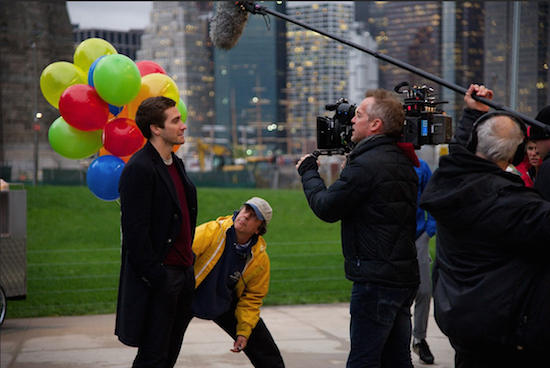EXCLUSIVE INTERVIEW: Jake Gyllenhaal talks about life & ‘Demolition’

In the past several years, actor Jake Gyllenhaal has been doing some of his best and most distinctive work, both in film and on stage. His newest film “Demolition,” which opens in New York City on April 8, continues that streak.
Still disarmingly boyish at 35, it’s hard to believe Gyllenhaal appeared in his first film in 1991 (when he had a minor role in “City Slickers.”) Since then, he has acted in such noteworthy films as “Donnie Darko,” his 2001 break-out role; “The Good Girl;” “Brokeback Mountain,” for which he received a Best Supporting Actor Academy Award nomination; “Zodiac,” as part of a remarkable ensemble that included Mark Ruffalo and Robert Downey Jr.; “Love and Other Drugs;” “End of Watch;” “Prisoners;” “Southpaw;” and “Nightcrawler,” which earned him Best Actor nominations from SAG, BAFTA and Hollywood Foreign Press.
In his latest film, “Demolition” — in which several key scenes take place in Coney Island —Gyllenhaal plays Davis Mitchell, a Wall Street master of the universe in his mid-30s, who has lived a charmed, comfortable and privileged life. That life is completely upended when Davis’ wife Julia is killed in a car crash. Gyllenhaal gives an intense, nuanced performance, which might very well earn him his first Best Actor Academy Award nomination. The film is directed by Jean-Marc Vallee (“C.R.A.Z.Y.,” “Dallas Buyer’s Club,” “Wild.”).

Brooklyn Boro
View MoreNew York City’s most populous borough, Brooklyn, is home to nearly 2.6 million residents. If Brooklyn were an independent city it would be the fourth largest city in the United States. While Brooklyn has become the epitome of ‘cool and hip’ in recent years, for those that were born here, raised families here and improved communities over the years, Brooklyn has never been ‘uncool’.